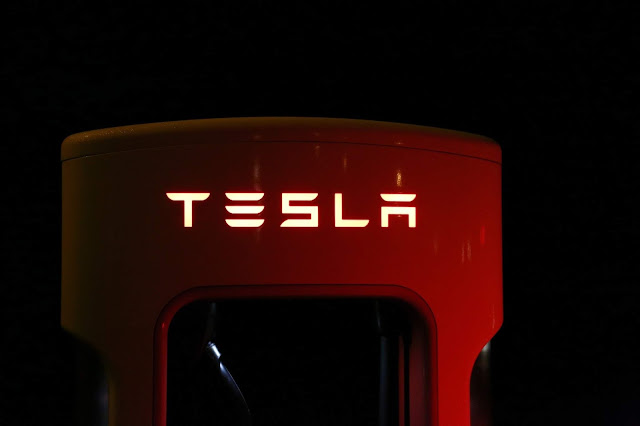Offering more power and longer range...
Panasonic is due to start mass producing next-generation lithium-ion batteries for Tesla with five times the energy capacity of existing models as early as 2023, according to a report from Nikkei Asia. Although the batteries are being manufactured primarily for Tesla, a Panasonic executive didn’t rule out supplying them to other companies in a November interview. The new batteries promise to boost the range of electric cars, and make them more affordable to produce and sell.
In a statement given to Reuters, Panasonic declined to confirm Nikkei’s report. “We are studying various options for mass production, including a test production line we are establishing this business year,” the company said. “We don’t, however, have anything to announce at this time.”
Nikkei reports that the larger, higher-capacity batteries — which are known as 4680 battery cells because they measure 46mm x 80mm in size — could increase the range of electric vehicles by around 20 percent, while Tesla itself has mentioned a 16 percent range increase. They could take a car like its flagship Model S and increase its range from 650km (around 404 miles) to 750km (around 465 miles), according to Nikkei. Panasonic is reportedly expanding its Wakayama, Japan plant to mass produce the new batteries, and previously told the Wall Street Journal that test production is due to start in March 2022.
 |
| panasonic start producing tesla battery |
The next-generation battery cells were detailed by Tesla at a high profile event in September 2020. As well as their higher storage capacity, the company’s CEO Elon Musk said the cells are six times more powerful, and reduce cost per kWh by 14 percent (batteries are estimated to make up 30 percent of the cost of an electric vehicle). Lower prices and improved range are the sorts of improvements that are key to making electric cars more desirable, as Nikkei notes.
The focus of Tesla’s 2020 event was on the company’s attempts to produce the batteries in-house, to reduce potential disruptions from relying on external suppliers like Panasonic. But in a series of tweets posted ahead of the event, Musk said the company would continue to buy battery cells from other companies. “We intend to increase, not reduce battery cell purchases from Panasonic, LG & CATL,” Musk tweeted, adding that Tesla would be unlikely to achieve high-volume production of the cells until 2022.
During later profit calls, Musk has repeated that he expects Tesla's in-house creation of the 4680 cells to begin in 2022, and that the primary vehicles furnished with these phones will transport that very year. In an April 2021 income call, Musk demonstrated the organization was 12 to year and a half away from large scale manufacturing of the new cells. In any case, in July he advised that "model creation is simple, yet high-volume creation is hard," the WSJ notes.
The situation with Tesla's new battery cells is probably going to be referenced at the organization's forthcoming profit approach Wednesday, January 26th, when Musk has additionally said he would share an authority "item guide update" for the Cybertruck following reports of its postponement to mid 2023.

ReplyDeleteWhatsApp New Feature
I want you to keep providing such information, I learned something out of your knowledge, I hope to keep sharing such information thank you.
ReplyDeletevisit site
Do you know : Meta To Launch A Digital Clothing Store Where One Can Buy Outfits For Avatar.
ReplyDelete